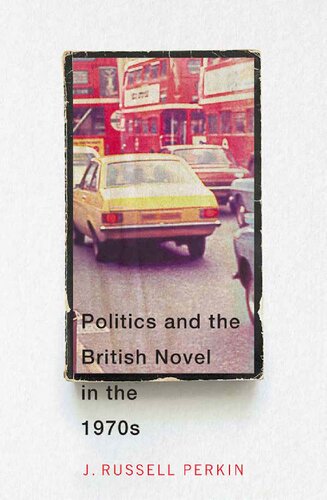

Most ebook files are in PDF format, so you can easily read them using various software such as Foxit Reader or directly on the Google Chrome browser.
Some ebook files are released by publishers in other formats such as .awz, .mobi, .epub, .fb2, etc. You may need to install specific software to read these formats on mobile/PC, such as Calibre.
Please read the tutorial at this link: https://ebookbell.com/faq
We offer FREE conversion to the popular formats you request; however, this may take some time. Therefore, right after payment, please email us, and we will try to provide the service as quickly as possible.
For some exceptional file formats or broken links (if any), please refrain from opening any disputes. Instead, email us first, and we will try to assist within a maximum of 6 hours.
EbookBell Team

4.7
76 reviewsThe 1970s in Britain saw a series of industrial disputes, a referendum on membership in the European Economic Community, conflict about issues of immigration and citizenship, and emergent environmental and feminist movements. It was also a decade of innovation in the novel, and novelists often addressed the state of the nation directly in their works.
In Politics and the British Novel in the 1970s Russell Perkin looks at social novels by John Fowles and Margaret Drabble, the Cold War thrillers of John le Carré, Richard Adams's best-selling fable Watership Down, the popular campus novels of Malcolm Bradbury and David Lodge, Doris Lessing's dystopian visions, and V.S. Naipaul's explorations of post-colonial displacement. Many of these highly regarded works sold in large numbers and have enjoyed enduring success – a testament to the power of the political novel to explain a nation to itself. Perkin explores the connections between the novel and politics, situating the works it discusses in the rich context of the history and culture of the decade, from party politics to popular television shows.
Politics and the British Novel in the 1970s elucidates a period of literary history now fifty years in the past and offers a balanced perspective on the age, revealing that these works not only represented the politics of the time but played a meaningful role in them.